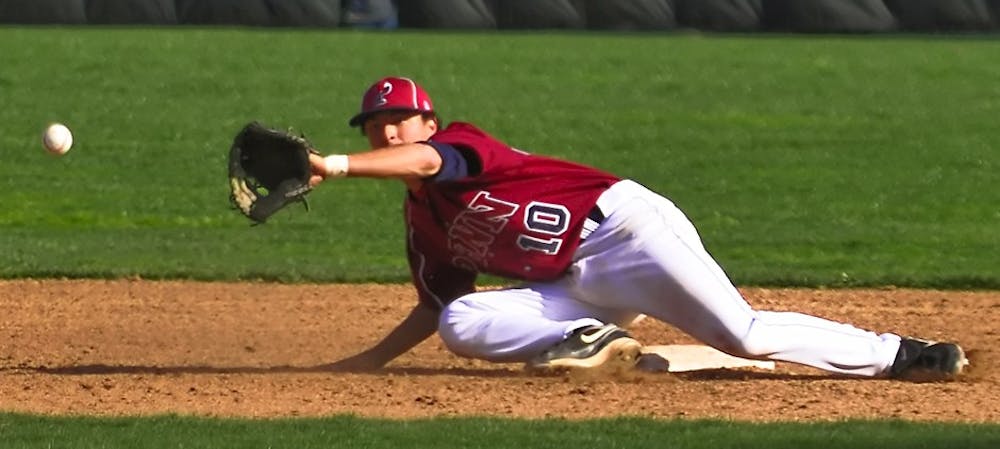
In a country where food is rationed and a lack of housing is increasingly becoming a problem, it should come as little surprise that thousands of children have no equipment with which to play their national sport.
Go to Bat for Cuba, an organization started by two Penn baseball players, wants to change that.
Though Go to Bat for Cuba is the brainchild of former Penn right fielder Adrian Lorenzo and current Penn shortshop Derek Vigoa, Academy Award-winning filmmaker Ken Burns deserves some credit.
The Quakers watched Burns’ acclaimed baseball documentary, The Tenth Inning, as a team in the fall of 2010. After seeing some footage of children in the Dominican Republic playing baseball with rocks and sticks, Lorenzo had an idea.
“You hear about people sending things to the Dominican Republic, but you never hear about them sending things to Cuba,” Lorenzo said.
Acknowledging the political barriers linked to the United States embargo of Cuba, Lorenzo still felt there was something he could do.
He went to fellow Cuban American Vigoa to discuss the idea of sending baseball equipment to Cuba.
Vigoa quickly agreed to get on board.
“Baseball is such a big part of the Cuban culture,” the senior shortstop said. “Kids grow up and they play ball all day; they play with sticks and rocks and whatever they can find.”
If Burns deserves a bit of credit for getting baseball equipment to Cuba, then so does the NCAA.
Beginning on Jan. 1, 2011, the NCAA enacted new standards regarding bats usable in intercollegiate competition. The new rules required that bats meet certain standards of “Ball-Bat Coefficient of Restitution.”
“Basically every bat that had been in use before would now be obsolete,” Lorenzo said.
He and Vigoa felt they could take advantage of this opportunity.
Because of the rule change, the two are focusing on bats, Vigoa said, though the organization will also look to send other equipment, such as gloves, baseballs, helmets and catcher’s equipment.
To this point, many of the donations to Go to Bat for Cuba have come from the Penn baseball team, although the Georgetown team has also donated over 80 bats to the cause.
Vigoa said the group has collected roughly 150 bats, over 200 baseballs and a variety of gloves, cleats and helmets.
Receiving donations is just part of the task, however. Arguably the more difficult aspect is getting the equipment to the people who need it.
Vigoa referred to the situation as “sticky,” while Lorenzo said there are “political obstacles,” referencing the existing embargo and Cuban customs.
To make sure the equipment gets there safe and sound, Vigoa and Lorenzo plan to deliver the equipment themselves.
The former teammates, both Cuban American with parents born in Cuba, have never set foot in the island nation.
If all goes according to plan, their first trip to the land of their mothers and fathers will take place this summer.
And with them, they’ll bring the tools of the sport they love, so that Cuban children might experience the joy of baseball played with a ball and bat, instead of a stick and a bottle cap.
The Daily Pennsylvanian is an independent, student-run newspaper. Please consider making a donation to support the coverage that shapes the University. Your generosity ensures a future of strong journalism at Penn.
DonatePlease note All comments are eligible for publication in The Daily Pennsylvanian.




